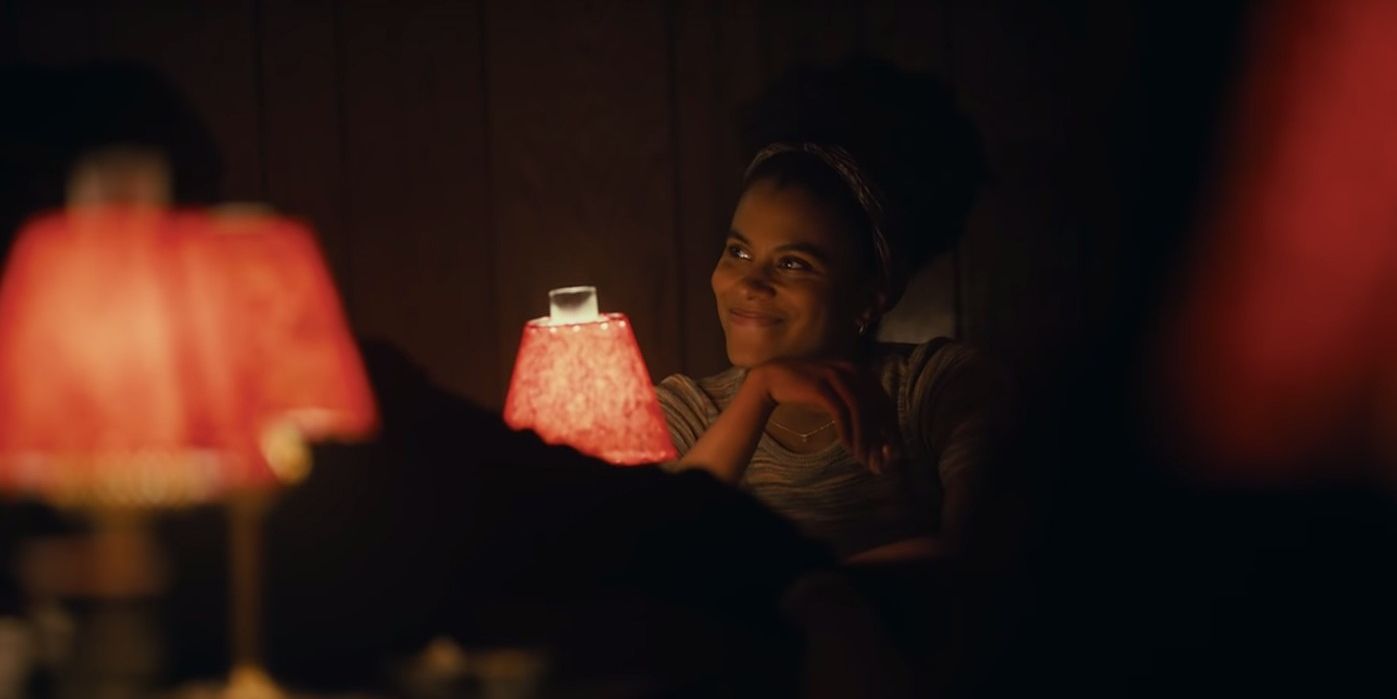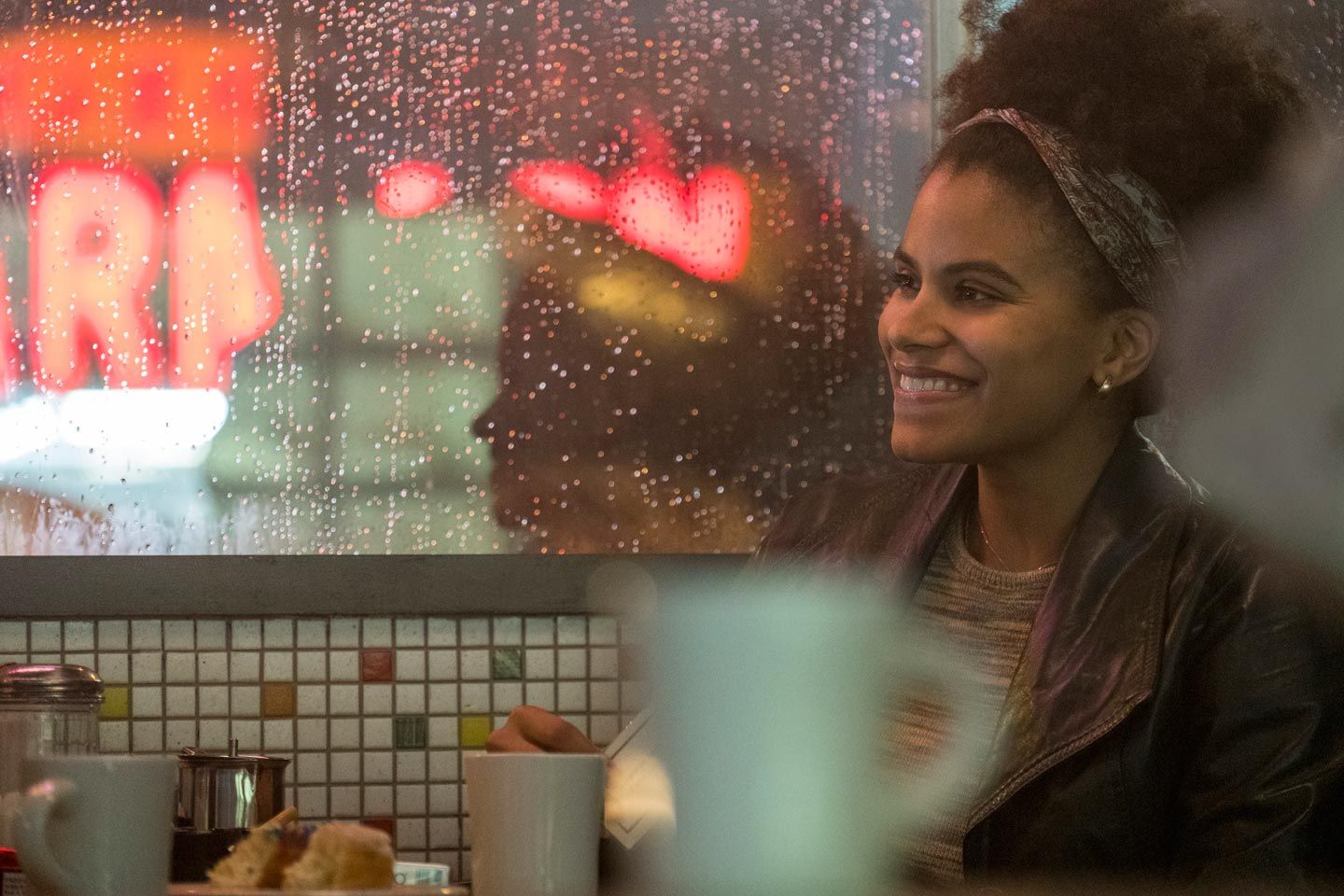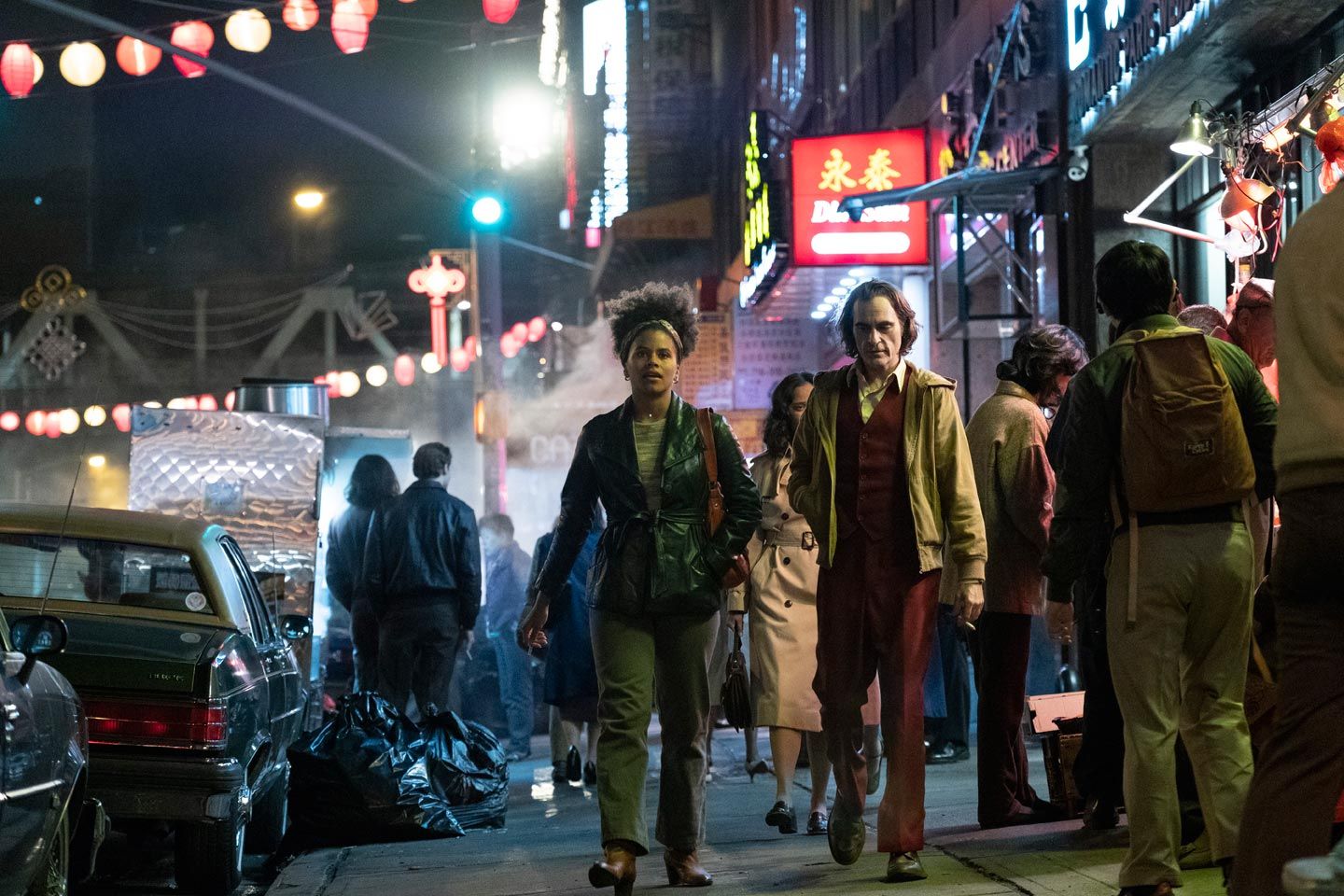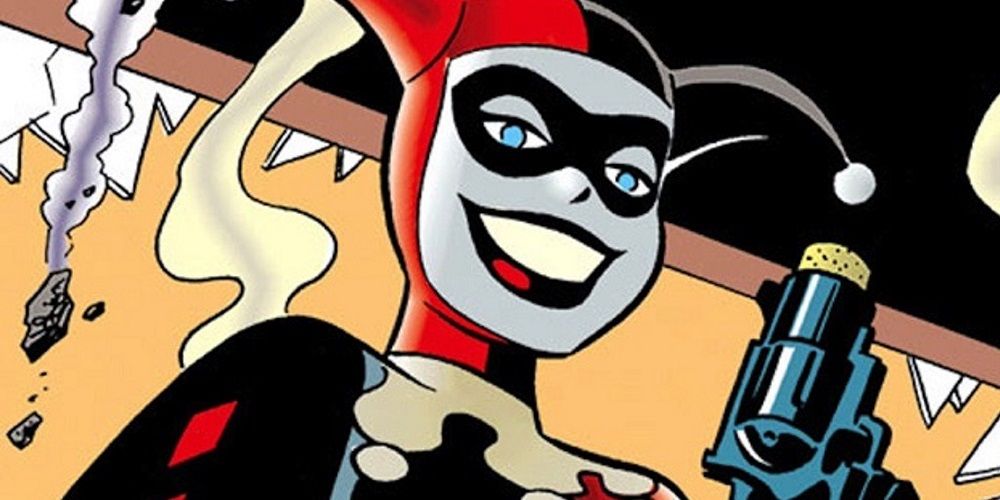WARNING: The following article contains spoilers for director Todd Phillips' Joker, in theaters now.
Joker paints a picture of a very troubled man, Arthur Fleck (Joaquin Phoenix). His life is going nowhere, he lives in a grungy apartment in a grimy city, and even the small support system he has for his mental health issues is evaporating. Yet, he appears to find happiness with his neighbor Sophie Dumond (Zazie Beetz). However, the relationship actually reveals an even darker side to Fleck. It also thematically ties Sophie to Joker's other famous love interest, Harley Quinn.
Ms. Dumond
Sophie is a single-mother who supposedly has a brief moment of empathy with Fleck during an elevator ride early in the film. As a result, Fleck becomes infatuated with her. He seemingly invites her out to see his stand-up. They share dinner and walk together through Gotham. She even comes across as one of the people in the city who believes that whoever was in the clown makeup and killed three Wayne employees is a hero. It's the happiest Fleck ever is in the film, together with her even in his darkest times where she holds his hand and supports him.
Then one night, he sneaks into Sophie's apartment and waits for her to return. When she does, she's clearly horrified. She barely knows his name and only sees him as her neighbor. She pleads with him to leave her and her daughter alone.
Fleck realizes that all his romantic interactions with Sophie were all delusions in his head. None of it was real, it was just him imagining an ideal version of their relationship. Fleck leaves without harming mother or daughter, but begins his final transition into the Joker.
What's In Your Head?
What makes the Sophie of Arthur's imagination so disconcerting is how Arthur's dream version of Sophie is completely there to service his needs. There's nothing overtly sexual about these fantasies (beyond one passionate kiss). Instead, it's all about reinforcing Fleck and his feelings.
There's nothing of Sophie and her life in Arthur's fantasies. Her daughter plays absolutely no role in them. It's almost as if Arthur forgets about Sophie's life because it would require work on his part. Instead, the fantasy Sophie reassures him, holds his hand and tells him he's just fine. There's none of the give and take that exists within a real relationship. Even in his head, Sophie doesn't exist as his romantic partner. She's simply there to support him.
It's possessive in a way that betrays Fleck's perception of himself as a "good guy who never gets any breaks." Along with his other fantasy of appearing on the Murray Franklin show (where he's in the audience and randomly brought onto the stage to the adoration of the crowd and Franklin himself) it shows a man who wants to be validated and cheered and loved -- but not because he did something. Just because he is.
Fleck is shown throughout the film to be a surprisingly angry and vengeful man, lashing out with murderous intent when properly provoked. While it could be argued that his first two killings were self-defense, he actively hunted down the third wounded, fleeing man to make sure he put him down. He kills his own mother. He's an angry man, who doesn't seem to understand why the world -- including Sophie -- can't just be there for him. It's a dark perspective on the protagonist of the film, but it fits with the overall breakdown of the Joker as a character.
Sophie & Harley
Things actually work out better for Sophie than they do for another woman who's become entangled in the Joker's antics over the years: Harley Quinn. Harley's origins paint her as the ultimate victim of the Clown Prince of Crime. He manipulates her believe he's secretly a vulnerable and troubled man, in need of nothing but love and attention. Doctor Harleen Quinzel comes to believe that she's the one who can help him, and ends up becoming a villain and partner for the Joker. However, their relationship has always been one-sided. Harley loves Joker, but Joker ultimately couldn't care less about Harley. At best, she's a tool, a support system that will back him up no matter what he does.
It's remarkably similar to how Fleck imagines Sophie. He doesn't perceive her as a person with her own wants and needs, much like other versions of the Joker use Harley as a weapon and then discard her the second she stops being useful. Instead, both women are there for support, no matter what. It speaks to the inherent selfishness of Fleck and paints an unflattering picture of his views on other people. In his wildest fantasies, there's no happy relationship, just a dependent who'll do anything to prop him up. If this version of the Joker were to reappear down the line, he would likely attempt the same plan to create a follower like Harley. It would fit his m.o. perfectly.
Harley's (relatively recent) emancipation from the Joker and Sophie's horrified panic at Fleck appearing in her apartment demonstrate the ramifications that feelings of possession over others can have. They can derail the career of a promising psychologist, or lead a strange man to sneak into your apartment. It's a display of the Joker's inability to experience empathy, even as he rails against a society whose morals he's never tried to adhere to in his life. He doesn't pay others the same attention that he demands while on the Murray Franklin show.
In his head, there's no conception of what other people like or want or need. It's just about Fleck. By the end of the film, it's probably the greatest similarity between Fleck and previous versions of the Joker.




